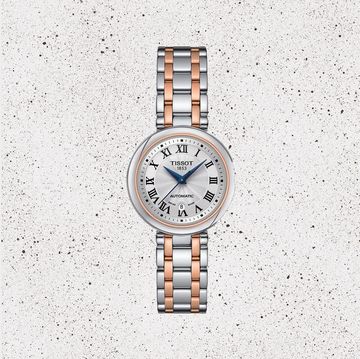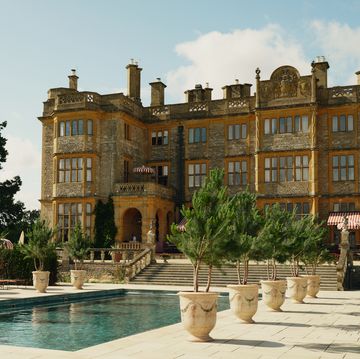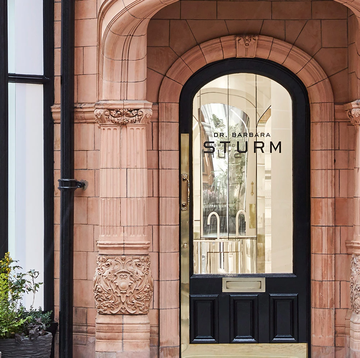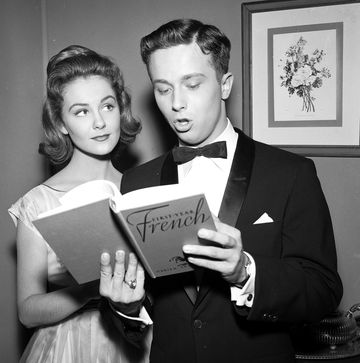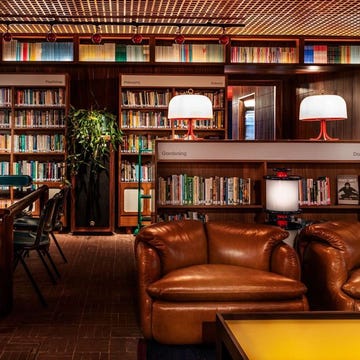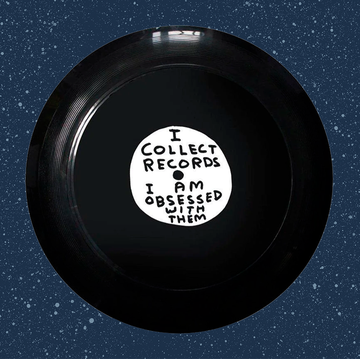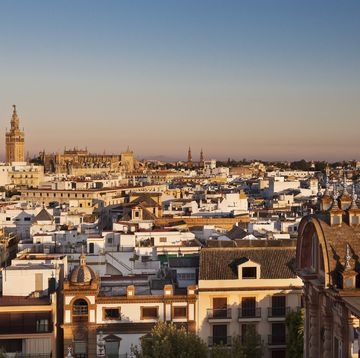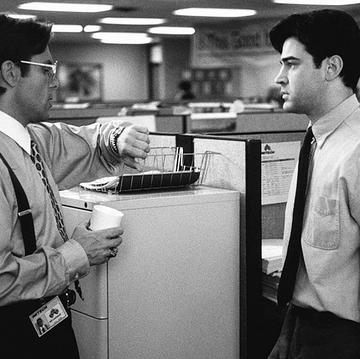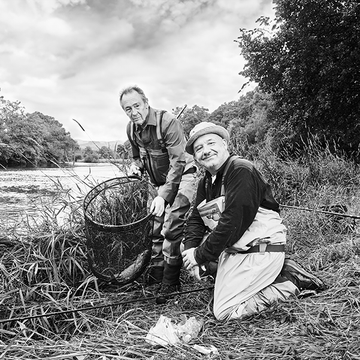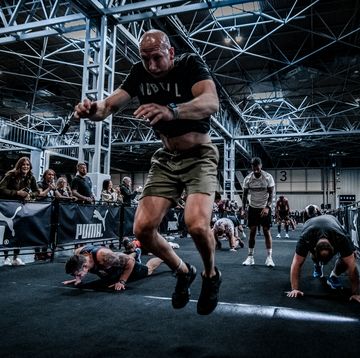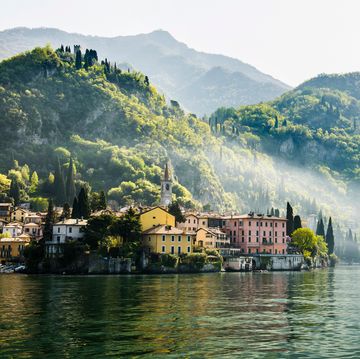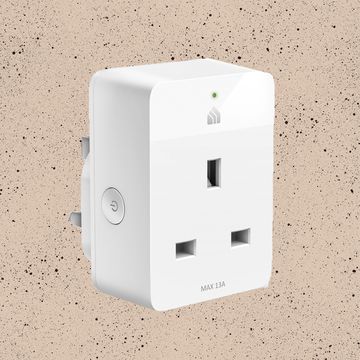Pablo Picasso's painting Le Sommeil depicts the artist's young lover Marie-Thérèse Walter naked and asleep in a fat armchair. It's a mesmerizing image. It's especially mesmerizing to the napping cognoscenti, of which I count myself a member. Here's one reason: On the back of the painting, on its stretcher, Picasso wrote, "Executed between three and six o'clock on 29 January 1932." Three hours! Marie-Thérèse is not in the flimsy grip of a catnap. This is, napwise, the real deal. This is a portrait of bliss.
The serious student of the nap, eyeballing Picasso's painting, may pick nits. Three to six o'clock is on the late and long side for a meaningful siesta, pushing into the cocktail hour—though the Spanish wisely do everything a bit later. (The sun is higher, and your metabolism is slower, during what I think of as the golden nap zone: two to four o'clock.) Also, it's awful to be observed while you're sleeping. Poor Marie-Thérèse. In David Foster Wallace's short story "Oblivion," a man at a medical clinic is shown a video of himself in REM slumber and he's horrified at what he sees—his "slack jaw and protrusive jowls," his "lips fishily loose." I'd rather a vengeful hacker release CCTV footage of me elbowing a kindly old lady from the last counter seat at the Grand Central Oyster Bar than post a clip of me drooling in wanton afternoon repose.
Naps have a bad reputation over in America, where sleep deprivation is worn like a Boy Scout merit badge. The national motto, thanks to the industrious Puritans, might easily have been You snooze, you lose. Or, as Benjamin Franklin put it, "Up, sluggard, and waste not life; in the grave will be sleeping enough." Thomas Edison, who thought future Americans would sleep far less, declared, "Really, sleep is an absurdity, a bad habit." Vladimir Nabokov called sleep "the most moronic fraternity in the world." Warren Zevon rephrased all this for a different era when he wrote "I'll Sleep When I'm Dead," a song heard to its finest freight-train effect ("I'm drinking heartbreak motor oil and Bombay gin") on his early-'80s live album, Stand in the Fire. We miss you, Warren, now that you're off taking your dirt nap.
A stigma is attached to a fondness for sleeping, especially during the daytime. This we have to fix, because dire things happen when you're sleep-deprived. The pilot at the helm of the Exxon Valdez, which spilled 11 million gallons of crude oil into pristine Alaskan waters, hadn't slept for 18 hours. The driver of the Walmart truck that slammed into Tracy Morgan's limousine bus, killing one person and badly injuring Morgan and three others, allegedly hadn't slept for 28 hours. Bill Clinton said, "Every important mistake I've made in my life, I've made because I was too tired." It's surreal to think that a nap might have spared the nation the Lewinsky scandal, which paved the way for the presidency of George W. Bush. His administration woke up the world in all the wrong ways, as if Bush were an air horn in human form.
The laureate of the nap, in the Western world at any rate, is Winston Churchill. Not for him the 20-minute head-on-desk doze. (Power naps, like PowerBars, make me feel worse, not better.) Here is perhaps his greatest utterance: "You must sleep sometime between lunch and dinner, and no halfway measures. Take off your clothes and get into bed. That's what I always do. Don't think you will be doing less work because you sleep during the day. That's a foolish notion held by people who have no imaginations. You will be able to accomplish more. You get two days in one—well, at least one and a half."
I have lived by these words for nearly a decade, as if they were tattooed on the underside of my eyelids. While they contain everything you need to know about golden-daylight slumber and are a pristine statement of fundamentals, I'd like to extend them a bit. There are some refinements of which you should be aware.
Wake up early every day—say, 6:00 a.m.—and put in around seven hours of committed work. It's easier to perform this labor when you know a sweet reward is coming. As Iris Murdoch advised in The Sea, The Sea, "One of the secrets of a happy life is continuous small treats, and if some of these can be inexpensive and quickly procured so much the better." Second only to sex, naps are life's most significant frugal pleasure.
Break at 1:00 p.m. or so for lunch, and make it delicious. You need to anchor yourself down a bit for a decent nap; have a chocolate-chip cookie and a glass of milk. You will need a cold, quiet room, ideally away from dog flatulence, though I sometimes allow my wheezing old black Lab to lumber upstairs with me. Now take off your clothes (my wife calls these "pants-off naps") and climb into bed. Part of the pleasure for me is using my iPhone for about 30 minutes before I go to sleep to catch up on news and the yak on my Twitter feed. Light from smartphones wrecks your ability to sleep at night, studies say, but we're talking about the daytime here. I'll also play a game or two of online backgammon. It's relaxing, even if I lose. I once confronted a guy whose online handle was Bezos. I'm not sure it was Jeff, but I thrashed him anyway, in the name of my friends who own, or formerly owned, bookstores.
Upon waking, the rookie can still make mistakes. The first is to forgo taking a shower. To properly jump-start your second day, you need to rinse away the cobwebs. If you're in a dandified mood, you can even put on fresh, crisp clothes. The second common mistake is to let postnap guilt sour your mood. Nix this by getting back to your desk for a solid three or four hours, breaking only when it's time to make a martini and give in to the evening.
I know: This advice is pointless if you have an office job. Short of pulling a George Costanza and hiring a contractor to build a napping lounge under your desk, you're out of luck. But good naps, like beach houses and fast WiFi, are aspirational. One of the benefits of, say, starting your own company is that you get to set your own nap schedule. You can look to writers for guidance on doing this properly.
The novelist Jim Harrison, in his memoir The Raw and the Cooked, sang the praises of "daily and fully undressed naps" and mentioned a five-hour snooze that followed a hot-dog-eating session at Papaya King. Philip Roth has come around, too. "Let me tell you about the nap," he said on National Public Radio, laughing. "It's absolutely fantastic. When I was a kid, my father was always trying to tell me how to be a man, and he said to me (I was maybe nine) . . . , 'Philip, whenever you take a nap, take your clothes off, put a blanket on you, and you're going to sleep better.' Well, as with everything, he was right. . . . Then the best part of it is that when you wake up, for the first 15 seconds, you have no idea where you are. You're just alive. That's all you know. And it's bliss, it's absolute bliss."
When I click "send" on this piece, I'm going to have lunch and then take a siesta—an hour or so, not three. Like Marie-Thérèse, I'm going to get naked. Unlike her, I'm going to pull up the covers.
Painting: Sleep © Vincent Desiderio, Courtesy Marlborough Gallery, New York.



